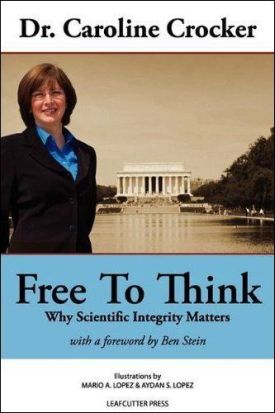The root of our ecological crisis
by Preston Bristow
Summary
Christianity
has been called arrogant toward nature and charged with being the
historical root of our ecological crisis. It is therefore appropriate
that we not only explore the Christian and Biblical basis of land
conservation and stewardship, but go beyond that to ask the question,
‘What is the root of our ecological crisis?’ The following article
addresses this criticism by presenting land conservation and stewardship
from a Biblical worldview and challenges Christians to apply the
Biblical principles of Christian stewardship to the use of God's
Creation.
Crimes against nature
In 1967, Lynn White, an historian from the University of California, published an article in
Science magazine entitled ‘The Historical Roots of Our Ecological Crisis’.
1
In his article, White maintained that because modern science and
technology are products of Western culture, and because Western culture
has at its roots in Christian attitudes and principles, and because
Christianity is arrogant toward nature and views nature as having no
reason for existence except to serve mankind, then Christianity bears a
huge burden of guilt for our current ecological crisis. Lynn White’s
article, while published over 30 years ago, is considered in academic
circles to be the definitive indictment of Christianity for crimes
against nature. And modern conservationists and environmentalists,
although they may not remember Lynn White, generally hold the view that
Christianity is environmentally unfriendly. It is worth examining in
some detail the allegation that Christianity is arrogant toward nature.
The portion of Scripture most quoted by critics who consider Christianity to be arrogant toward nature is found in Genesis:
‘And
God created man in His own image, in the image of God He created him;
male and female he created them. And God blessed them; and God said to
them, “Be fruitful and multiply, and fill the earth, and subdue it; and
rule over the fish of the sea and over the birds of the sky, and over
every living thing that moves on the earth”’ (Genesis 1:27–28).
These two verses tell us three critical points about the Christian and Biblical bases of land conservation and stewardship.
-
Human beings did not evolve from non-human primates, but were created
in the image of God. Men and women are more than merely very complex and
highly evolved apes. They possess physical attributes that are not
shared by animals, such as an erect posture, hands with a highly
developed opposable thumb that can do work, faces capable of expressing
great emotional feelings, and a brain and tongue capable of articulate
speech. More importantly, they possess spiritual attributes not shared
by animals, such as a moral consciousness, the ability to think
abstractly, an understanding of beauty, emotion, and the capacity to
know and worship God.
- Human beings are commanded by God to
be fruitful and to populate the earth. Men, women and children are this
world's greatest resource, not its greatest liability. Estimates of the
world’s human carrying capacity, that is, how many people this world can
sustainably support, are meaningless unless we answer the question of
how many people can be supported at what level of material affluence and
habits of consumption. While the six-fold increase in world population
over the past two centuries has been alarming, our world is currently
undergoing a demographic transition. The United Nations recently
estimated that 44% of the world's population live in countries where the
fertility rate has fallen below the replacement rate, and demographers
are now predicting that world population will peak within 50 years and
then decline, perhaps sharply, with potentially serious consequences.2
-
God entrusted humans to be the Earth's stewards. To subdue the Earth
and rule it, while not phrased in politically correct speech, is
analogous to the process of gardening. For a garden to be a success, the
soil must be broken up, seeds planted, the initial seedlings thinned,
the young plants watered, weeds pulled, and pests controlled, but in the
end there is a harvest. Gardening involves subduing and ruling a small
patch of wild nature to yield a benefit useful to people. The Scriptures
even tell us that it was God who planted the Garden of Eden as a home
for the first man and woman (Genesis 2:8)—as
if providing an example for us to follow. On a worldwide scale,
subduing and ruling is like managing and administering. Humankind has
been given the honor and privilege of managing and administering God’s
creation, with the expectation that we will do it responsibly.
If Christianity is not to blame, then what
is
the root of our ecological crisis? Interestingly, the answer to that
question—and a solution—can be found in an examination of the historic
roots of the environmental movement itself.
For usufruct alone
It
has been said that the international environmental movement had its
beginnings in the rock-strewn, clear-cut, soil-depleted fields of the
state of Vermont, USA., with the birth of George Perkins Marsh in
Woodstock, Vermont, in 1801.
3 George’s father, Charles Marsh,
was Woodstock’s first attorney, a Calvinist and admirer of legendary
preacher Jonathan Edwards and something of a naturalist himself. In
1864, while US Ambassador to Italy, George Perkins Marsh published
Man and Nature, the first book to attack the myth of the superabundance and inexhaustibility of the earth.
Man and Nature has been called the ‘fountainhead of the conservation movement’,
4
and his legacy is honoured at Woodstock's Marsh-Billings-Rockefeller
National Historical Park, the only US national park to focus on the
theme of conservation history and the changing nature of land
stewardship in America.
Perhaps the best known quote from
Man and Nature
is, ‘Man has too long forgotten that the earth was given to him for
usufruct alone, not for consumption, still less for profligate waste.’
5 Except for the use of the obscure legal term
usufruct,
which can most simply be translated as ‘fruitful use’, Marsh’s words
are as powerful and relevant today as they were 137 years ago. They are
also Biblically and theologically correct. Having defined the symptom,
Marsh also correctly defined the cause as human indifference,
shortsightedness, selfishness and greed.
Marsh once wrote to a
friend that he held it a ‘duty to adhere to the religion of one's cradle
until one finds a less objectionable one, which I have not.’
6
In other words, he accepted the principles of Christianity but had not
experienced its life-changing power. Like many who embrace Christianity
only part way, Marsh underestimated the selfishness of our fallen human
character, and the need for a changed heart and mind before people can
do what is right. Instead, Marsh’s antidote for wanton destruction and
profligate waste was enlightened self-interest, science and reform by
benevolent imposition. This is what environmentalists have continued to
do for the past 135 years: encourage conservation, seek technological
solutions and press for government regulations. It’s been a losing
battle, and our world ecological crisis continues to deepen.
7
Frugal Vermonters
Human
selfishness, greed and carelessness are moral problems that require a
moral solution. A change of morals requires a change of the mind and the
heart, and it is only God who can change minds and hearts. Listen to
the promise God gave King Solomon:
‘If
My people who are called by My name will humble themselves and pray,
and seek My face and turn from their wicked ways, then I will hear from
heaven, will forgive their sin, and will heal their land’ (2 Chronicles 7:14).
An example of this principle at work can be illustrated through the
story of the state of Vermont, which has been called the ‘birthplace’ of
conservation stewardship in the USA, and not only because George
Perkins Marsh was born there.
After the Vermont territory was
opened to European settlement, following the end of the French and
Indian War in 1760, wildlife was all but eradicated due to very heavy
trapping for furs, the forests being stripped for logging and for
farming, and the barren hillsides being over-grazed by merino sheep. By
1850, in less than 100 years, Vermont had become an ecological
wasteland.
8 Then something almost miraculous happened. Over
the next 100 years, from 1850 to 1950, Vermont was transformed from an
ecological basket case to a special place with a picturesque pastoral
landscape known the world over.
9 How did this happen? The
conventional answer is that the American West opened up following the
Civil War, marginal and high elevation farms were abandoned, the human
population stabilized and the land was allowed to recover.
Economic
stagnation and loss of population, however, usually lead to a downward
spiral into poverty and ignorance. In Vermont, the opposite happened.
Why is that? I believe it is because Vermont got religion. When the
pioneers and the adventure seekers headed West, most of whom were deists
anyway, those left behind turned to God in a deeply devout, Yankee sort
of way. Although it seems to go unmentioned in contemporary versions of
Vermont history, Christian conversions and a turning toward God swept
Vermont before and after the Civil War.
10 In fact, Vermont’s first tourist publication, issued by the Vermont Bureau of Publicity in 1911, was entitled:
Vermont, Designed by the Creator for the Playground of the Continent.
The
life of Vermont's communities during this period was centered on the
church and the Protestant work ethic. The Protestant work ethic is
misunderstood today. It is often bemoaned that the longer hours
Americans are now working represents a return to the Protestant work
ethic. The real reason Americans are working longer hours and holding
down multiple jobs is because they want more money to buy more things!
One of the better definitions of the Protestant work ethic is actually
found in the Vermont Constitution, which states ‘a firm adherence to
justice, moderation, temperance, industry, and frugality are absolutely
necessary to preserve the blessings of liberty, and keep government
free’ (Chapter I, Article 18).
11
Vermonters of this
period of recovery from ecological disaster were a frugal people. When I
arrived in Vermont 30 years ago, you could still hear the expression
‘Use it up, wear it out, make it do, or do without.’ Today, that kind of
thinking is greeted with amusement, ridicule or even contempt.
Moderation and frugality combined with work is a fundamental tenet of
Biblical Christianity which is practised for the benefit of the
community as a whole.
12 Under the Biblical model, hard
working and frugal people are content, are not a burden on society or
their neighbors, and willingly give of their excess to help others in
need. It also happens that hard working and frugal people are good
stewards of their land and resources, who live a more sustainable
lifestyle in the context of the natural world around them.
Christian stewardship
Why
is it that Christianity does not have this earth healing effect
everywhere it reaches? I propose two reasons, which I lay at the foot of
all Christian believers as a challenge to their basic assumptions and
thinking about this world and their place in it.
The
first challenge
is to our almost unqualified embrace of the current economics of growth
and consumerism. Traditional capitalism’s emphasis on work and the
rewards of honest labor, restrained by Christianity and the Bible’s many
admonishments against greed and covetousness, produced great benefits
for the good of society. Today, with Christianity relegated to the
margins of society, the economics of growth and consumerism are
spiralling upward unchecked, driven by relentless advertising and
promulgating a worldview based upon dissatisfaction and craving. We are
daily bombarded with appeals that we will be happier if we buy more
things that we don’t really need, that soon wear out, that bring only
fleeting pleasure, and ultimately leave us in greater debt. This drive
to earn more so we can get more has resulted in a booming economy, but
at a disastrous cost to the human spirit and world ecology.
The
second challenge
is to our assumption that this world does not matter in the eternal
scheme of things. It is interesting to note that the bestselling
Christian fiction series of all time is the
Left Behind series by Tim LaHaye and Jerry Jenkins, which is about the last days.
13
The minds and hearts of Christians are focused less on this life and
more on the life to come, and rightly so. Biblical prophecy predicts the
destruction of this world and the creation by God of a new heavens and a
new earth. If this world and everything in it is headed for
destruction, then why should we worry about some ecological degradation
along the way?
The answer to these challenges is found in a right
understanding of Christian stewardship. Christian stewardship is based
on the concept that everything we have was given to us—our health, our
emotions, our intellect, our talents, the social and economic benefits
into which we have been born, and all we do or earn or make with what
God has given us—all ultimately are gifts from God for which we cannot
take credit. In fact, because God created everything, He owns everything
and they are only on loan to us. We are not owners but caretakers. And
as the Biblical parable of the Talents
14 tells us, we will be held accountable to God for what we do with the resources He has entrusted to us.
Frederick
and Julia Billings, and their granddaughter Mary French Rockefeller,
were professing believers in Jesus Christ and understood the concept of
Christian stewardship. It was their implementation of the principles of
George Perkins Marsh at Marsh’s boyhood home that led to its becoming a
national historical park dedicated to conservation stewardship. It was
their spirit and example that surely contributed to Woodstock being
recognized as the prettiest small town in America.
15 They demonstrated through a century of careful management their belief that stewardship of God's Creation
does
matter! If we treat this world shabbily to meet our greed, our
pleasure, our convenience, or our supposed materialistic, consumptive
and consumer-driven needs, we are not glorifying God as the Maker of
Heaven and Earth.
Creation groans
Scripture hints at a mystical and even more compelling reason to care for His Creation. In
Romans 8:21–22, the Apostle Paul writes the following very curious and profound statement:
‘…
the creation itself also will be set free from its slavery to
corruption into the freedom of the glory of the children of God. For we
know that the whole creation groans and suffers the pains of childbirth
together until now.’
The historical creeds and
confessions of Christianity emphasize that not only the souls but also
the bodies of those who trust in Jesus Christ will be resurrected and
transformed into renewed, perfected and glorified bodies.
16
The resurrection of the physical body was emphasized by the New
Testament writers and the historic creeds and confessions of
Christianity because of the Gnostic heresy. The Gnostics maintained that
only the spirit went to heaven and so it didn't matter what immoral
actions were committed in the physical body. Christians are guilty of a
type of modern day Gnosticism if they maintain that, because we are
heaven bound, it does not matter what we do to this physical earth.
According to the Apostle Paul, not only will our bodies be resurrected
but the very creation itself, in some mystical way, will be transformed
and renewed, actually reborn, and freed from the effects of the Curse,
the Flood and human abuse.
Conclusion
Biblical Christianity, far from being the root of our ecological crisis, in fact offers not only a credible
explanation for our ecological crisis but also the very
solution
to our ecological crisis. As the popular author Wendell Berry has
stated it, our ecological crisis is a crisis of character, not a
political or social crisis.
17 Enlightened self-interest alone
is not sufficient motivation for fallen human beings to deny
gratification and sacrifice desires. The religion of consumerism is a
spiritual problem, and we must fight fire with fire. Spiritual problems
require spiritual solutions. Jesus Christ can transform our fallen and
sinful natures, and truly change our character and our values. The
promise of eternal happiness with Jesus Christ can free us from
relentless pleasure seeking in this life, and can give us the peace of
knowing that this corrupted and abused world will be redeemed and made
perfect forevermore.
References
- White, Jr., L., The historical roots of our ecological crisis, Science 155(3767):1203, 1967.
- For a readable explanation of this demographic transition see Singer, M., The population surprise, The Atlantic Monthly p. 22, August 1999 and also the home page of the Population Research Institute at <http://www.pop.org>.
- Albers, J., Hands on the Land: A History of the Vermont Landscape, MIT Press, Cambridge, MA, p. 196, 1999.
- Mumford, L., The Brown Decades: A Study of the Arts in America, 1865-1895 (1931) rev. ed., Dover, New York, 1955.
- Marsh, G.P., Man and Nature (1864), Lowenthal, D. (Ed.), Harvard University Press, Cambridge, p. 36, 1965.
- Lowenthal, D., George Perkins Marsh: Prophet of Conservation, University of Washington Press, Seattle, p. 375, 2000.
-
Conflicted as Marsh may have been in his faith, it is important to note
that the man behind ‘the fountainhead of the conservation movement’ did
not embrace the ideas of his contemporary, Charles Darwin, who sought
to locate man as part of nature. As Marsh wrote to his publisher,
‘nothing is further from my belief, that man is a “part of nature” or
that his action is controlled by the laws of nature …’ (Lowenthal, Ref.
6, p. 291).
- For a readable portrayal of the cultural forces that produced the Vermont of today see: Klyza, C.McG. and Trombulak, S.C., The Story of Vermont, Middlebury College Press, Hanover, NH, 1999; also Albers, Ref. 3.
- Vermont has been recognized by National Geographic Traveler
(October, 1999) as one of the top 50 places to visit in the world, and
the National Trust for Historic Preservation (USA) has placed the entire
state of Vermont on its list of America’s ‘Most Endangered Historic
Places’ (June, 1993).
- While not flatteringly told, a
confirmation of Vermont’s evangelization can be found in: Lee, W.S., Go
tell it on the mountain, The Green Mountains of Vermont, Henry Holt, New York, 1955.
-
A copy of the Constitution of the State of Vermont can be obtained at
the Vermont Legislative Home Page at
<http://www.leg.state.vt.us/statutes/const2.htm>.
-
Nash, J.A., Toward the revival and reform of the subversive virtue:
frugality; in: Chapman, A.R., Peterson, R.L. and Smith-Moran, B. (Eds.), Consumption, Population and Sustainability: Perspectives from Science and Religion, Island Press, Washington, 2000.
- The Left Behind series is published by Tyndale House Publishers, Wheaton.
- See Matthew 25:14–30.
- Waugh, K., The prettiest small town in America, Ladies Home Journal, p. 170, October 1998.
- See the Apostle’s Creed and the Westminster Confession of Faith of 1647, Chapter XXXII, among others; based on 1 Cor. 15:51 and 1 Thes. 4:16–17.
- Berry, W., The ecological crisis as a crisis of character; in: The Unsettling of America: Culture and Agriculture, Sierra Club Books, San Francisco, 1996.
Preston Bristow
has a B.S. (High Distinction) in botany and plant pathology from the
University of Maine. He has been a conservationist and land steward for
more than 20 years, and is an elder at the First Congregational Church
of Woodstock, Vermont. He is interested in learning of other landscapes
healed and transformed through Christian stewardship.






